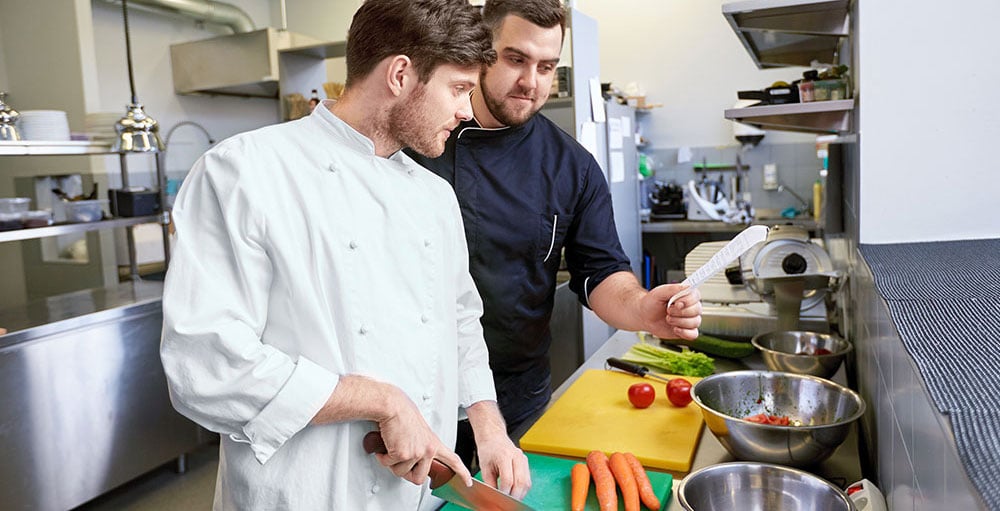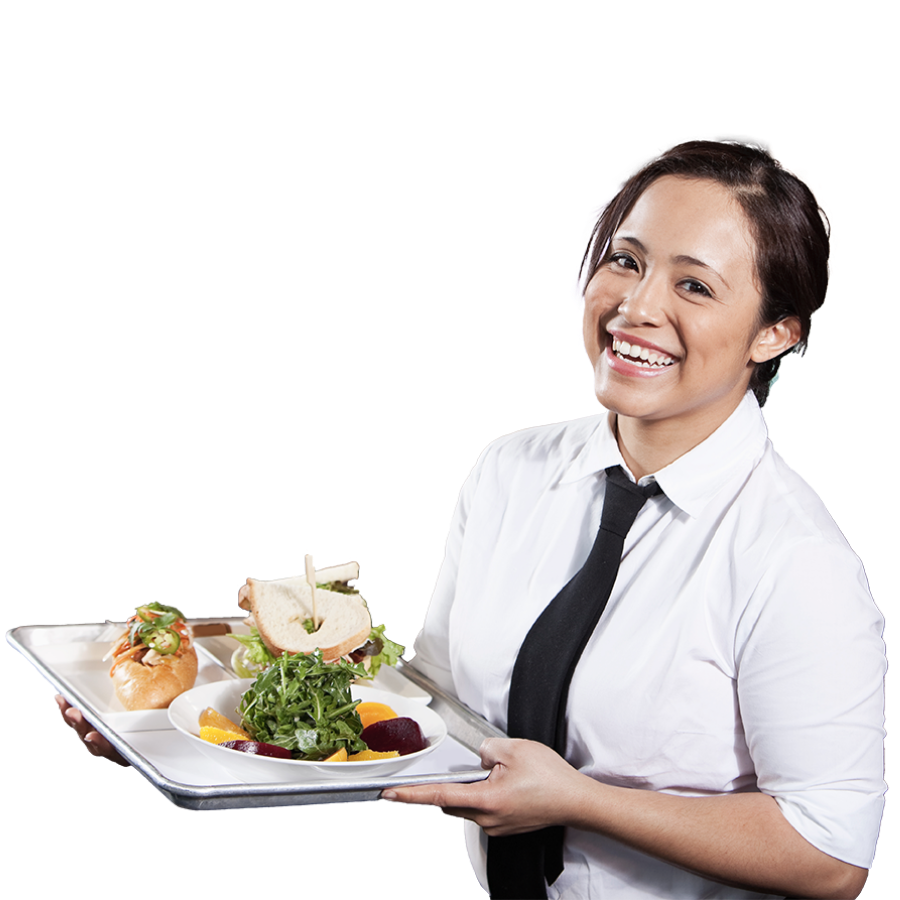Food safety training helps prevent foodborne illness incidents — and protects your business from costly consequences!
For some food businesses, food safety is viewed more as common sense instead of necessary skills, practices and habits that should be prioritized through proper food safety training. While a common sense approach may cut it when making food for yourself at home, it’s integral to be trained in safe food handling when providing food to the public.
You may encounter food safety risks when owning, managing or working in a food business, such as the biological, chemical or physical contamination of food. The best way to protect your customers, your business and yourself from these hazards (and from financial, legal or reputational consequences!) is by ensuring you have a comprehensive food safety training program in place for all staff.
Protect your customers from food safety risks
Getting comprehensive food safety training is an essential step in protecting your customers from food poisoning, allergic reactions and other health risks related to eating contaminated food.
Food Poisoning
According to the Centers for Disease Control and Prevention (CDC), every year:
- one in six Americans get sick from foodborne illness
- 128,000 are hospitalized
- 3,000 people die
Unsafe food handling practices, poor personal hygiene and contaminated food preparation surfaces or equipment contribute to a large part of foodborne illnesses in the United States.
To minimize the risk of foodborne illness, everyone who works with food must:
- learn the different types of food contamination and understand the ways food can become contaminated
- know what potentially hazardous foods, also known as high-risk foods, are and how to handle them properly
- understand the biological causes foodborne illness such as bacteria, toxins and viruses
- follow the proper way to store, thaw, prepare, cook and serve food
- properly and regularly clean and sanitize surfaces, dishes, utensils and equipment
- always practice good personal hygiene
Food Allergies
According to Food Allergy Research & Education (FARE), about 32 million Americans have food allergies, and a food allergy reaction sends someone to the emergency room every three minutes. Each year, 200,000 people need emergency medical care because of an allergic reaction to food.
This is why it’s critical for a food business to have food safety measures in place to protect customers from severe and even life-threatening allergic reactions.
Everyone who works in a food business must:
- understand that food allergies can be life-threatening and must be taken seriously
- know the most common food allergens (and understand that any food can be an allergen)
- understand how important it is to communicate with customers, other staff and management to ensure all measures are taken to safely prepare a meal
- know the signs and symptoms of an allergic reaction and what to do in an emergency
- know the ways cross-contamination can occur and how to prevent it
This is why food safety training is so important. When food handlers complete a food safety training course, you know that they’ve learned the essential skills and knowledge to safely handle food, practice proper allergen management and maintain high standards of personal hygiene and cleanliness. Properly trained food handlers and a robust Food Safety Plan are the keys to ensuring food safety in your business.
Food safety training makes good business sense
Food safety training helps protect your customers from food safety incidents — and it also boosts your business’s bottom line! Having a food safety incident occur at your business costs money and damages reputation, threatening the long-term health of the business.
Remember that you lose money when:
- a customer sends back food they think is undercooked, smells “off” or has physical objects in it such as hair, paper, plastic wrap and glass
- stock rotation isn’t done properly and food gets spoiled
- pests get into your business because of food that is not stored properly or the premises aren’t adequately cleaned and sanitized
- you get negative online reviews, or a failed health inspection report is made public on a government website, eroding public trust in your business
- you are required to pay fines or even shut down your business due to a failed health inspection
In the U.S., nearly any company in the food supply chain can be held liable for a contaminated food product!
It’s required by law in many states!
Food safety is integral to public health — which is why food businesses are held to high standards and must follow specific food safety laws and regulations in their local area.
Food safety laws and regulations differ across states, so it’s important that you know what is required in yours. In many states, at least one supervisory employee must have completed a Food Handler Course or Food Manager Course. In some states, every employee who handles food must complete food safety training and have their Food Handler Certificate.
The best way to make sure your business is compliant with the food safety laws and regulations in your state is to employ staff who have their Food Handler Certificate or ensure everyone who handles food in your business takes a Food Handler Training Course and gets their certificate.
Investing time, money and resources into food safety training for all staff is invaluable for your business because it:
- protects your brand and reputation
- prevents negative reviews, customer complaints or media scandals
- reduces operational costs related to food waste, pest eradication or meal comps
- helps avoid costly fines or business closure
We’ve made getting the food handler training you need quick and simple. Userve’s online Food Handler Training Course can be completed in less than a day, or you can set your own pace with course access for up to 12 months! Our comprehensive training gives food handlers the tools and knowledge they need to follow safe food handling practices and prevent foodborne illness incidents.
If you have a group of employees to enroll, you may be eligible for a complimentary Userve Business Account! Using our Business Accounts is the simplest way to manage your staff training needs and stay compliant with food safety laws and regulations. Learn more about the benefits of a Userve Business Account or get in touch with us today!

